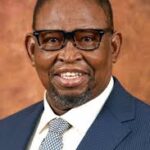In an unprecedented move, the Investing in African Mining Indaba 2025, set to take place from February 3–6 at the Cape Town International Conference Centre, will spotlight the voices of indigenous peoples and mining communities.
This marks a transformative shift in the mining industry’s approach to community engagement. Over 30 years as Africa’s premier platform for mining investment and deal-making, the Mining Indaba has long been a key player in shaping the future of African mining.
Now, it’s setting a new standard, placing local communities directly at the heart of the conversation. “The meaningful integration and collaboration with mining communities and indigenous people are essential to shaping the future of mining,” says Laura Nicholson, Head of Content & Strategic Partnerships for Mining Indaba.
This year, for the first time, representatives from indigenous and mining communities will take part in key sessions throughout the four-day event, offering their perspectives on the future of mining.
The 2025 agenda promises to be a game-changer, with a renewed focus on building bridges between the mining industry and the people most affected by it: the indigenous populations whose ancestral lands often house rich mineral deposits, and the mining communities that emerge as a result of mining activity.
The statistics are telling. Africa is home to 30% of the world’s mineral reserves, yet the economic benefits from mining have often bypassed the very communities living around these resources.
The Mining Indaba’s shift is a response to this growing disparity, aiming to ensure that the voices of these communities are not just heard but are integral to the decision-making process.
Indigenous communities have long had an inherent connection to their land, seeing it as sacred and integral to their identity. In contrast, mining communities often form around mining projects, bringing in migrant labor and transient workers seeking opportunities.
While both groups intersect in their reliance on the land, their distinct experiences and challenges must be acknowledged.
Mining Indaba 2025 aims to foster open dialogue between these two communities and the broader mining industry, creating a platform for constructive problem-solving and mutual benefit.
“The future of mining depends on the integration of local communities,” says Nicholson. “Those living closest to mining projects are vital stakeholders in building a sustainable and equitable mining industry.” The event will encourage direct engagement between mining companies, governments, and indigenous and community representatives, with a focus on addressing community-related challenges such as land rights, environmental protection, and economic opportunities.
One of the most exciting features of Mining Indaba 2025 is the launch of a video competition in partnership with The Impact Facility, a social enterprise supporting artisanal mining communities across East Africa.
The competition invites members of mining communities and indigenous peoples to share their vision for the future of mining in their areas. “This is a tangible example of Mining Indaba’s commitment to inclusion,” says David Sturmes-Verbeek, co-founder of The Impact Facility.
“By amplifying the voices of these communities, we can better understand what needs to change to ensure mining operations are not only responsible but beneficial to all involved.”
The video competition is a bold initiative to democratize the conversation around mining’s future. Submissions will explore the theme, “What does Futureproofing African Mining mean for your community?” The most compelling entries will be showcased at the conference, with the creators given free access to the event and potential speaking engagements.
This initiative highlights the crucial role of indigenous peoples and local mining communities in shaping a sustainable, inclusive mining sector.
With the global mining industry under increasing scrutiny for its environmental and social impact, Mining Indaba 2025 stands as a beacon of hope for a future where mining operations co-exist with and support the prosperity of the communities they affect.
This forward-thinking approach not only promises to redefine Africa’s mining sector but also sends a powerful message to the world: sustainable mining must center on the people who call the land home.








